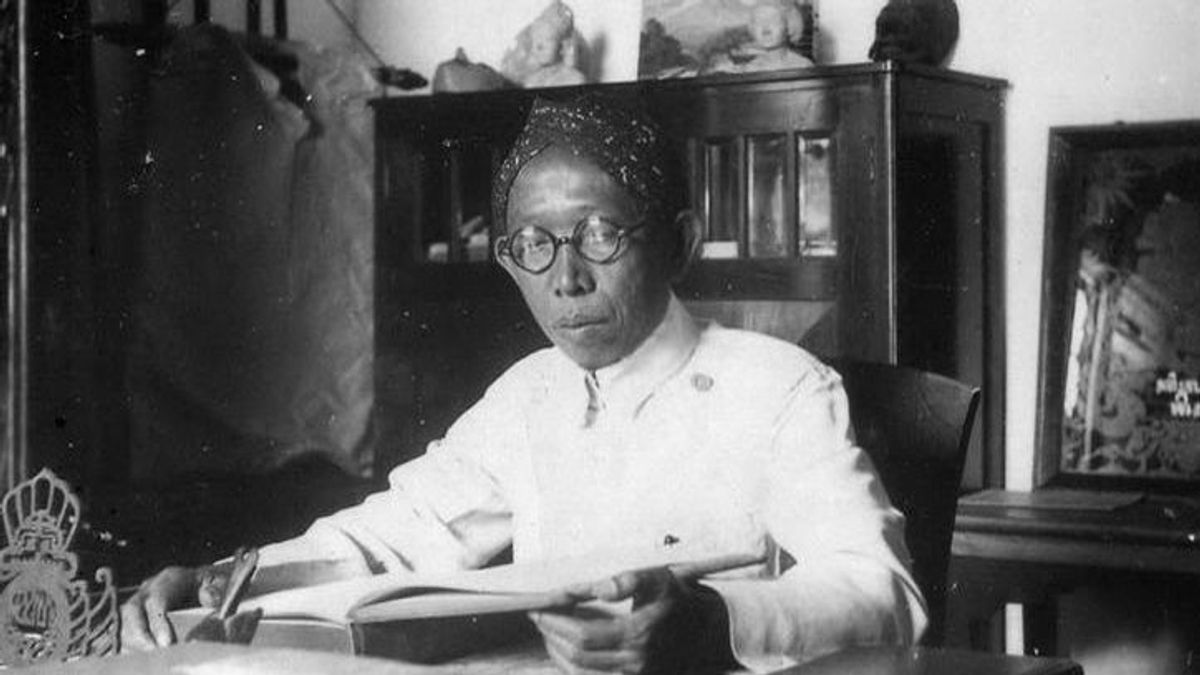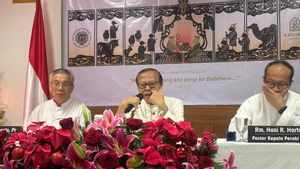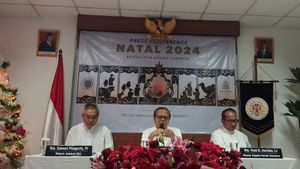JAKARTA - Historical events today, 63 years ago, April 26, 1959, Soewardi Soerjaningrat or who is familiarly called Ki Hajar Dewantara passed away. His passing brings deep sorrow to all Indonesian people. He is a native who often invites his people to dare to dream. Including independence. Even his spirit to liberate the nation is second to none. Tried every way. From radical to elegant way. In the end, he chose his own path of struggle: education.
Anger and flammability are the two things that often accompany Soewardi's life. Since childhood, he has established himself to speak out against the arbitrary treatment of the Dutch. Every time a friend from his school was hurt by the Dutch, he immediately put on his body. Punishment doesn't matter to him. The origin of the Dutch child is battered, he thought.
This attitude persisted until Soewardi continued his studies at the Bumiputra medical school, School tot Opleiding van Inlandsche Artsen (STOVIA) in 1905. Instead of submitting to the will of the Dutch, Soewardi was active in politics. He wanted the Dutch East Indies to be free from the shackles of colonialism. His activeness in politics made Soewardi choose not to continue his education.
Ki Hajar Dewantara with his family. (Doc. National Library)He prefers to develop his talent in the world of writing. Even writing skills are a means of struggle. He also joined his friends, Ernest Douwes Dekker and Tjipto Mangoenkoesoemo and formed the Indische Partij or the Indies Party in 1912. The three were nicknamed the Three Ones. The party became a forum for gathering people who did not agree with Dutch policies.
Soewardi often protested against the entire Dutch agenda that harmed the natives. His most famous protest was the appearance of the writing Als Ik eens Nederlander was (If I Was a Dutchman). The writing provoked the anger of the Dutch. therefore, the Triumvirate was exiled to the Netherlands.
“Thus, Soewardi opened a new horizon for the bumiputras to imagine themselves into anything with the brilliant phrase: if I were. With that expression, a person can imagine himself different from himself in the current reality; and being able to imagine a reality different from that of the here and now, in front of oneself. It is no exaggeration to say that Indonesians were born from this article.”
The initial management of the Taman Siswa College, which was founded by Ki Hajar Dewantara in Yogyakarta. (Doc. National Library)“As soon as the article was published, Soewardi was arrested and exiled to the Netherlands. He was exiled for five years and returned to the Dutch East Indies in 1919. However, he was already someone else: Ki Hajar Dewantara and no longer Soewardi. He founded Taman Siswa and built a new order in the classroom based on the ideology of kinship and coaching,” said Takashi Shiraishi in the book 1000 Years of the Archipelago (2000).
His departure to the Netherlands became a turning point for Soewardi. He changed a lot. From being radical and impulsive to being a calculating person. Education was then chosen as a new teaching in the struggle to liberate the nation.
He also founded Taman Siswa after returning from the Netherlands. His identity as a noble was abandoned. The decision resulted in the change of his name Soewardi Soerjaningrat to Ki Hajar Dewantara. His dedication to education is second to none. His services will be remembered forever by all Indonesians. Even though Ki Hajar Dewantara died on April 26, 1959 in Yogyakarta.
The statue of Ki Hajar Dewantara in the front yard of the Yogyakarta Student Park College. (Doc. National Library)“Taman Siswa education is designed not to be like Dutch education, but to be like what the Javanese call pelvicawentah, momong, among or ngemong. Dutch words for education, opvoeding or pedagogy, the concepts cannot be translated into Javanese."
“Javanese education is based on order and peace, not coercion, discipline and orders. The goal is to watch children develop naturally, guide them in the right way before making mistakes, and cultivate a free personality.” Close Kenji Tsuchiya in the book Democracy and Leadership: The Awakening of the Student Park Movement (2019).
That is the historical event today 26 April 1959, the departure of the Indonesian education hero Ki Hajar Dewantara.
The English, Chinese, Japanese, Arabic, and French versions are automatically generated by the AI. So there may still be inaccuracies in translating, please always see Indonesian as our main language. (system supported by DigitalSiber.id)








